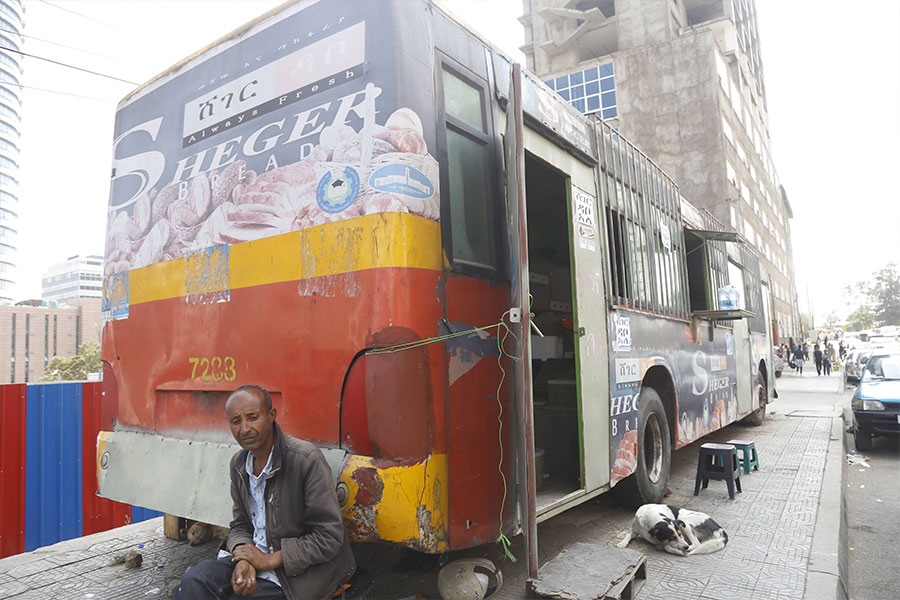
Agenda | Dec 19,2021
On a sunny mid-November day last year, 19-year-old Rahel Wondimu attended a public hearing at the Intercontinental Addis Hotel on Joseph Tito Street. The meeting was organized by the city authorities to discuss public safety during football matches in the capital.
As one of 19,500 registered and paying members of Saint George Sports Association, Kedus Giorgis, Rahel was entitled to attend the meeting. A passionate fan of her club, she wore the orange and yellow jersey of her team that she bought for 200 Br.
It is one of three jerseys she wears to football matches that she attends all over the country, often travelling with her team.
St. George, one of 16 football clubs in the national premier league, has a huge fan base and sells sports paraphernalia including wristbands, scarves, flags and shirts both to mobilise the base and generate funds.
Rahel’s favorite pick is a checkered jersey that sells for 350 Br.
"I can't buy it as it is a bit too expensive," she said.
The club sells the shirts and the merchandise at costs that range from 150 Br to 350 Br, and are made available at the club offices in Qirqos district.
Saint George Sports Association owns the football club and the merchandise helps increase the Association’s revenue, according to Menilik Girma, public relations head.
"The demand for the products has increased drastically," said Menilik.
Two years ago the Association sold 6,232 jerseys, but just in the two months since September of last year, the number has reached 5,000.
Rows of shoes adorned with logos and colors of two Ethiopian football clubs, Ethiopian Coffee & Saint George, line the wall of a boutique.
The club has been importing these products, especially from Italy and China. This year, it has started to source the products from a local supplier, Alpha Tibeb Advertising.
"The forex crunch has led us to switch to a local supplier and the local products are cheaper," said Menilik.
Another team that has enjoyed a bonanza of jersey sales is Ethiopia Coffee Sports Club, Buna, which has 20,000 registered fans.
"This year the jerseys sold out faster than we expected, and we might run out soon," said Solomon Tamrat, Vice President of supporters Association.
Last year the association sold 20,000 jerseys and it has prepared 25,000 jerseys for this year. The club issues one type of jersey and sells each for 400 Br.
"So far we have sold 20,000," he said.
In the first three days of October last year, when they opened their annual sale, the club sold 4,560 jerseys and earned 1.8 million Br.
Not only the old and prominent clubs are using this mechanism to raise funds, but also late entrants to the league have adopted the system.
Fasil Kenema Sports Club in Gonder, Amhara Regional State, joined the premier league three years ago and it is marketing its merchandise.
Unlike the two other teams, Fasil Kenema's fans are mostly in Gonder where the club sold over 7,000 jerseys last year.
The Club offers imported products that are sold for 350 Br, with the option of adding shorts for an extra 100 Br. The locally-made products only cost 200 Br.
This year, the Club has more than doubled the price to 800 Br, according to Gashaw Asmare, chairperson of the Club.
"The suppliers failed to deliver the products on time," said Gashaw. "Thus, we gave the contract to a foreign company to deliver 4,000 jerseys."
Last year, Dashen Brewery, a major sponsor of Fasil Kenema, donated 1,000 jerseys to the club and they were sold for 600 Br a piece. According to Gashaw, Dashen has again donated 1,000 jerseys to the Club.
The Club will retain 70pc of the revenue generated by the merchandise and the balance will go to the fan association of the club.
Not only the clubs, but private businesses are also involved in supplying this merchandise as the demand is growing.
Yared Tilahun is a 35-year-old entrepreneur who manufactures shoes under his brand, Venus. He played for the Ethiopian Airlines football team as a teenager.
While his football career was cut short due to medical reasons, he switched his profession and co-founded a company with his friend to produce leather accessories such as shoes, belts and other leather products.
Recently, he started adding football club logos on his shoes. His product are imitations of a popular shoe model, All Star Chuck Taylor of Converse, and he has signed with Saint George and Bahir Dar City Football Clubs to put their logos on the shoes.
"As a trial, we made 1,000 shoes for each club," Yared told Fortune.
Saint George buys the low cut models for 480 Br and the high tops for 500 Br from Yared, and sells them for 550 Br and 600 Br, respectively.
Ethiopian Coffee separately is trying to an agreement with a Chinese company to manufacture its own branded shoes.
Yared also produces shoes the colour of Ethiopian Coffee without the club's logo.
A sports commentator for the past decade, Fikir Yilikal, says that with the clubs are not benefiting much from the sales of such items.
More jerseys are sold in the market beyond what is distributed by the clubs, according to Fikir.
"There are people who have assessed the demand for these products and are benefiting from it," said Fikir. "They do not contribute a penny to the clubs."
This has happened because of the unmatched demand for sports paraphernalia, the limited supply of products by clubs and the failure of the teams in branding and marketing their merchandise, according to Fikir.
"Ethiopia is one of the countries that have the most passionate football fans in Africa. Yet the clubs are not reaping benefits from these due to their lack of organization and strategy," he concluded.
PUBLISHED ON
Jan 05,2019 [ VOL
19 , NO
975]

Agenda | Dec 19,2021

Viewpoints | Jun 11,2022
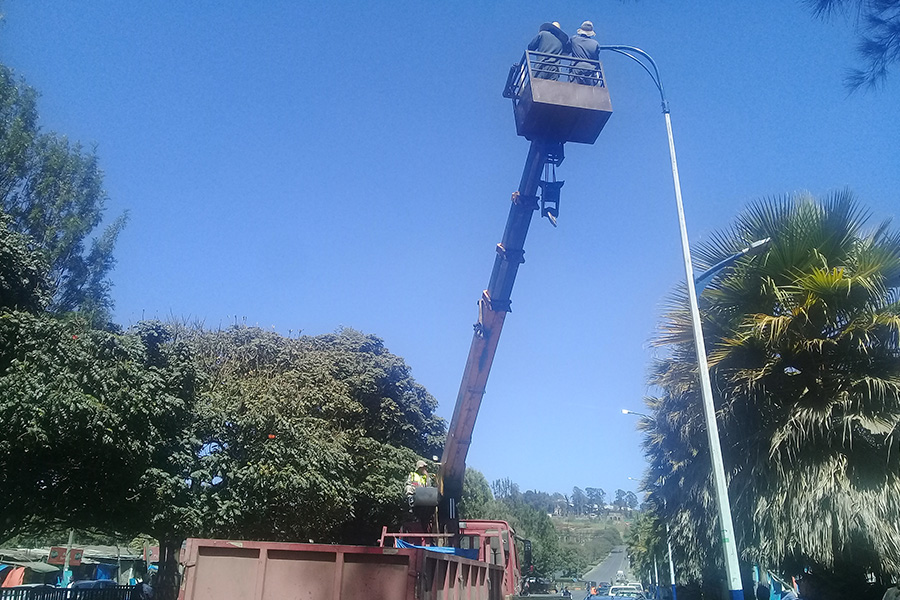
Radar | Feb 11,2023
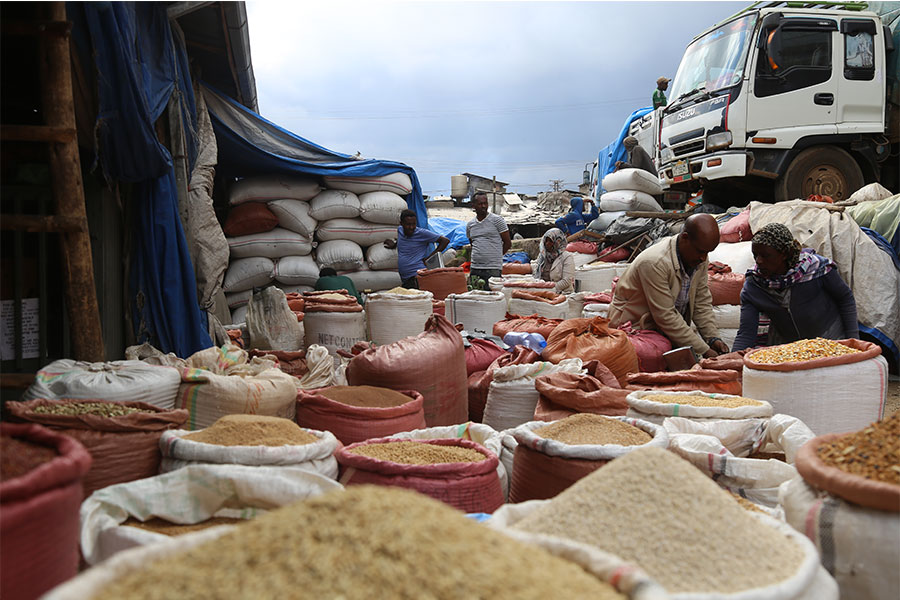
Featured | Jun 01,2019
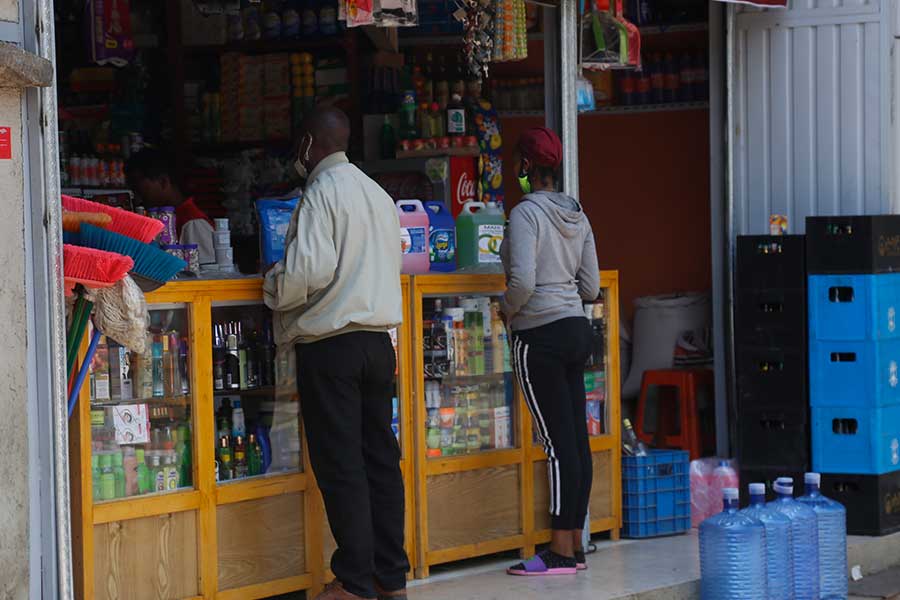
Featured | Jul 10,2020

Sunday with Eden | Oct 10,2020

Viewpoints | Apr 04,2020
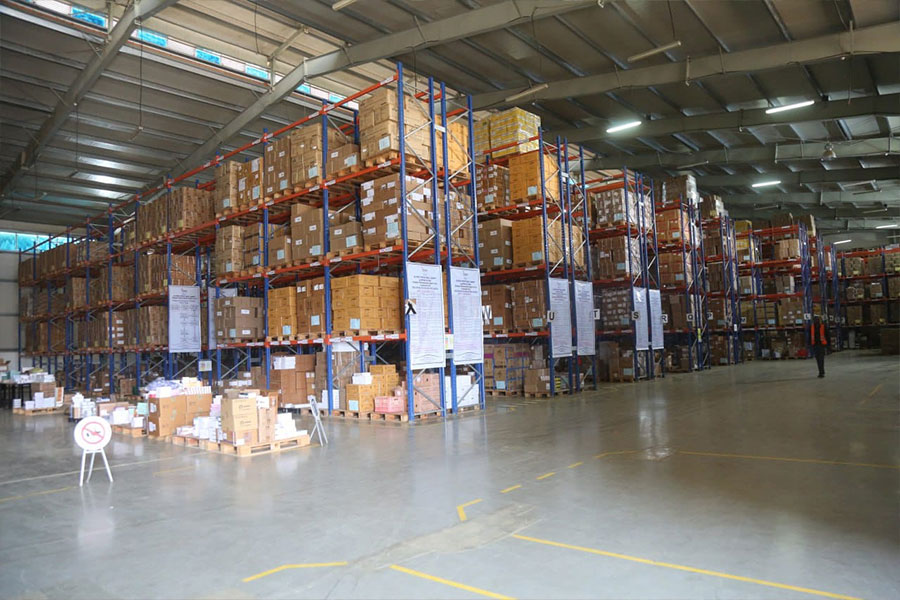
Fortune News | Jan 03,2025
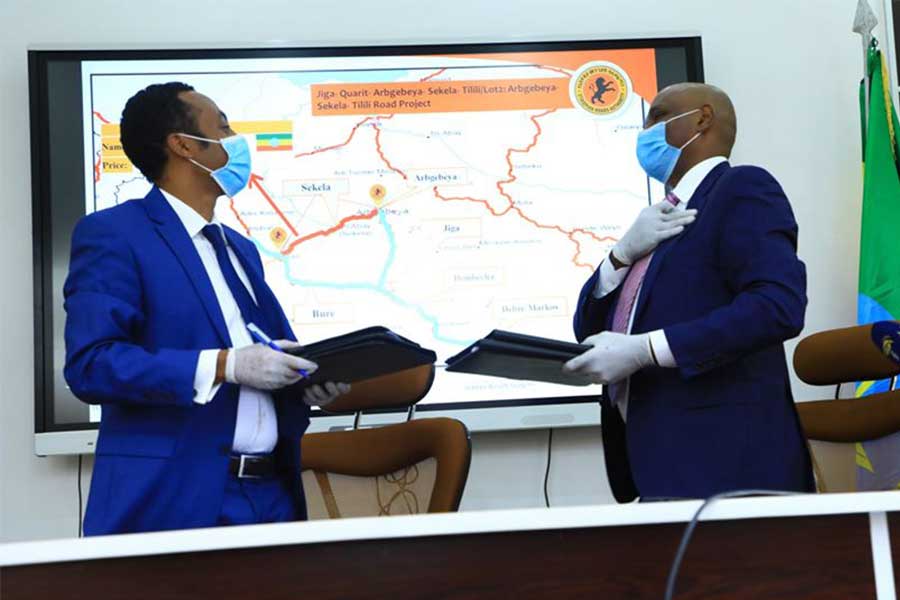
Fortune News | Jun 14,2020
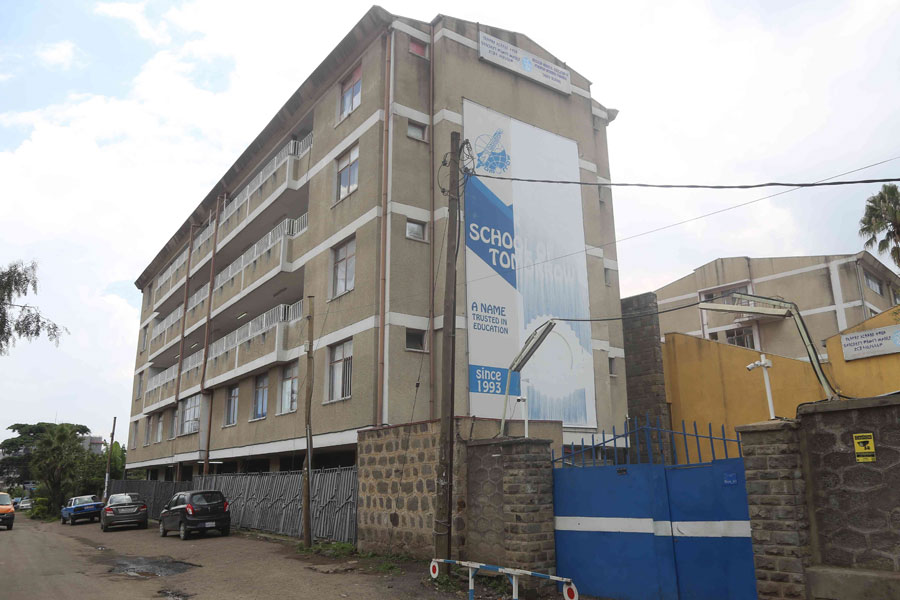
Agenda | May 20,2023

Dec 22 , 2024 . By TIZITA SHEWAFERAW
Charged with transforming colossal state-owned enterprises into modern and competitiv...

Aug 18 , 2024 . By AKSAH ITALO
Although predictable Yonas Zerihun's job in the ride-hailing service is not immune to...

Jul 28 , 2024 . By TIZITA SHEWAFERAW
Unhabitual, perhaps too many, Samuel Gebreyohannes, 38, used to occasionally enjoy a couple of beers at breakfast. However, he recently swit...

Jul 13 , 2024 . By AKSAH ITALO
Investors who rely on tractors, trucks, and field vehicles for commuting, transporting commodities, and f...

Oct 18 , 2025
The political establishment, notably the ruling party and its top brass, has become p...

Oct 11 , 2025
Ladislas Farago, a roving Associated Press (AP) correspondent, arrived in Ethiopia in...

Oct 4 , 2025
Eyob Tekalegn (PhD) had been in the Governor's chair for only weeks when, on Septembe...

Sep 27 , 2025
Four years into an experiment with “shock therapy” in education, the national moo...